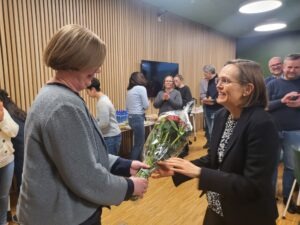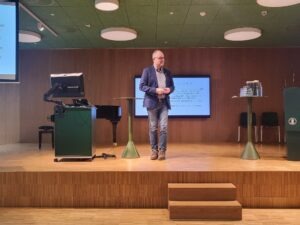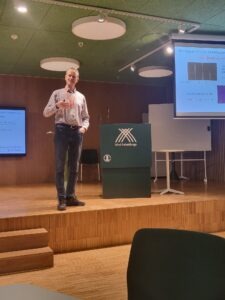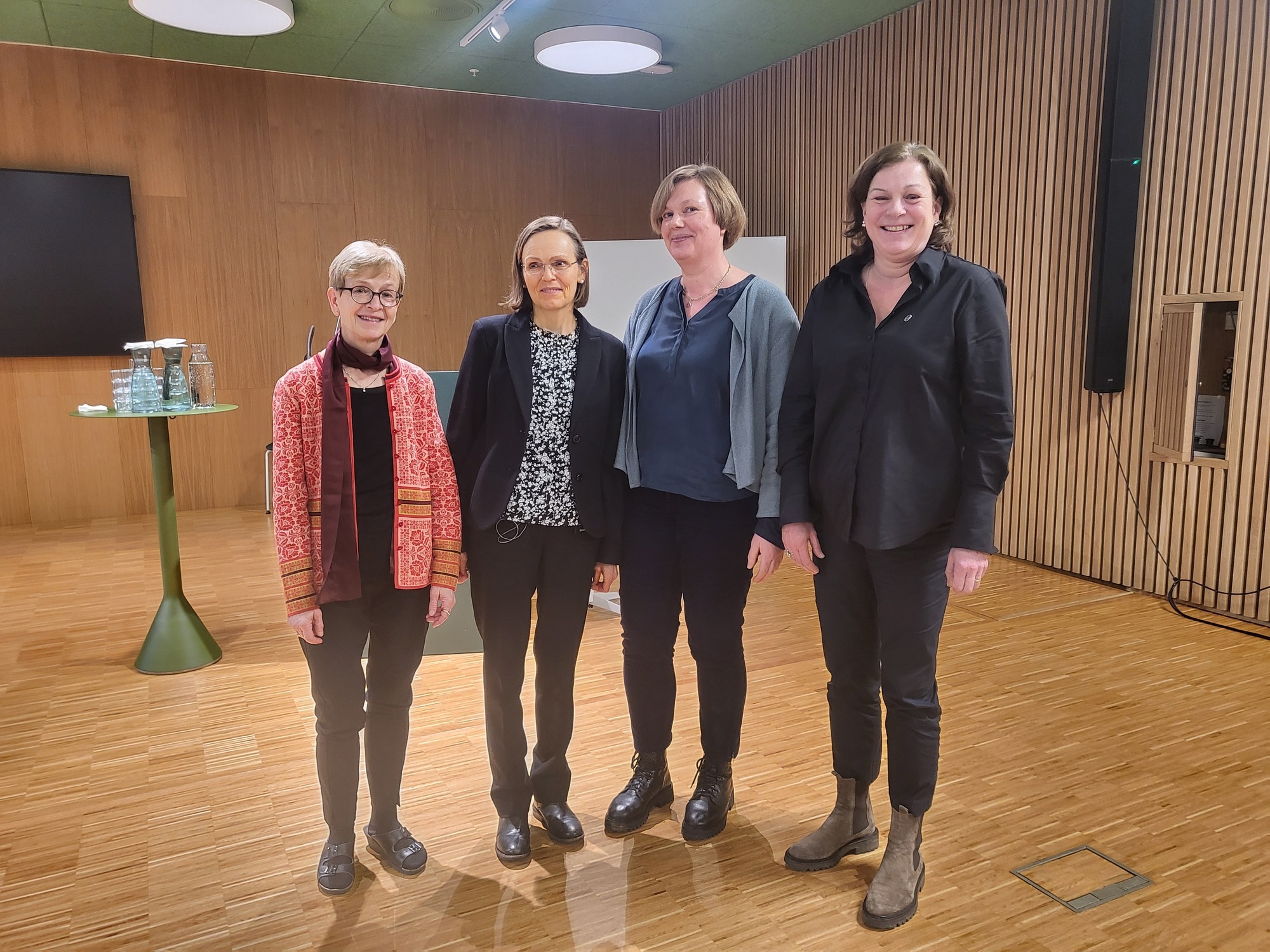Research Center for Translational Research in Epidemiology (TRACE)
Non-communicable diseases such as cardiovascular diseases and cancer are the cause of 80% of deaths before the age of 70 in a number of countries and constitute a significant part of the burden of disease at national and global level, according to the World Health Organization.
There is therefore a great need for new strategies to detect and combat non-communicable diseases. Norwegian researchers have a unique advantage in having access to many different health registers, biobanks and other types of health data. Researchers who do not usually collaborate can now find together through the newly established Research Center for Translational Research in Epidemiology (TRACE) at the University of Bergen. Researchers with expertise in medical statistics, epidemiology and informatics, together with researchers with expertise in biomedical subjects, will study the causes of these non-communicable diseases and their prevalence in society.
TRACE was established at the Department of Global Public Health and Primary Care (IGS) at the University of Bergen in 2022 and is led by Professor Tone Bjørge.
UiB and the Trond Mohn Research Foundation have joined forces to develop a research program that will support the research activity at the centre. In a competitive open call, a total of three research projects have received support of a total of NOK 18 million over 4-5 years:
Project 1: Pregnancy characteristics and cancer among mothers and their offspring: The importance of the mother’s complete reproductive history (CORECA)
Professor Tone Bjørge and her research team will investigate cancer risk in women and their children in the light of pregnancy history.
 A woman’s reproductive pattern affects the risk of later cancer. Circumstances during pregnancy, in her own fetal life and personal reproductive history can affect the risk of cancer for the woman’s children many years later. In this project, Bjørge and her colleagues will examine the significance of a woman’s overall reproductive history for her risk of getting cancer. The team will also investigate the risk of cancer in her children when they are young adults, based on their own reproductive history and exposures in the womb. The researchers will investigate these relationships in large register data from across the country. To analyze the linked registry data, the team will use new subject-specific surveys and a range of statistical and bioinformatic methods, including machine learning techniques. As we have fewer children per woman and give birth later, it is crucial to gain a better understanding of the importance of a woman’s complete reproductive history for later cancer risk.
A woman’s reproductive pattern affects the risk of later cancer. Circumstances during pregnancy, in her own fetal life and personal reproductive history can affect the risk of cancer for the woman’s children many years later. In this project, Bjørge and her colleagues will examine the significance of a woman’s overall reproductive history for her risk of getting cancer. The team will also investigate the risk of cancer in her children when they are young adults, based on their own reproductive history and exposures in the womb. The researchers will investigate these relationships in large register data from across the country. To analyze the linked registry data, the team will use new subject-specific surveys and a range of statistical and bioinformatic methods, including machine learning techniques. As we have fewer children per woman and give birth later, it is crucial to gain a better understanding of the importance of a woman’s complete reproductive history for later cancer risk.
Project 2: Prediction and prevention of brain damage in newborns (ProBND)
 The project managers are Rolv Terje Lie and Dag Moster at IGS
The project managers are Rolv Terje Lie and Dag Moster at IGS
There is a theory that some newborns are more vulnerable when they experience a lack of oxygen (asphyxia) during birth, but the underlying cause is unclear. Vulnerability in newborns will be found using family-related data from Norwegian health registers. Genetic and environmental factors may be responsible for this vulnerability. The project will investigate markers in DNA from umbilical cord blood that can affect the child’s ability to withstand asphyxia by using data from children and parents in the MoBa study. The researchers hope to find the causes of specific newborn vulnerabilities in this way. Vulnerability markers can eventually be used to lower the risk level for vulnerable newborns in challenging births.
Project 3: Causes of cancer in children – what role does the own immune system play? (KidImmune)
The project leader is Professor Ola Myklebost and researcher Anastassia Serguienko at the Department of Clinical science
 A number of auto-antibodies, which are directed against the body’s own proteins, were detected more frequently in serum from children with various types of cancer. The researchers found the auto-antibodies using a new method called human proteome arrays. These contain each of the most proteins that humans produce.Myklebost and the team now have the opportunity to examine the occurrence of a selection of the autoantibodies in a larger number of patients. This is important to determine whether these auto-antibodies can be linked to cancer in children, and thus can be useful as biomarkers to understand the mechanisms of the disease.
A number of auto-antibodies, which are directed against the body’s own proteins, were detected more frequently in serum from children with various types of cancer. The researchers found the auto-antibodies using a new method called human proteome arrays. These contain each of the most proteins that humans produce.Myklebost and the team now have the opportunity to examine the occurrence of a selection of the autoantibodies in a larger number of patients. This is important to determine whether these auto-antibodies can be linked to cancer in children, and thus can be useful as biomarkers to understand the mechanisms of the disease.
More importantly, they may have initiated or contributed to the development of cancer. A limited study of samples from children who later developed cancer shows a clear overabundance of these particular autoantibodies. The findings were recently presented to an international audience at the conference of the International Society of Pediatric Oncology (SIOP), and attracted great interest as this would be a completely new mechanism for cancer development.
Photos on this page courtesy of TMF
Facts about the projects
TMF funded research projects under the Center for Translational Research in Epidemiology (TRACE):
Pregnancy characteristics and cancer among mothers and their offspring: The importance of the mother’s complete reproductive history (CORECA)
Project manager Tone Bjørge
Project period 2024-2028
TMF allocation 6 MNOK
Prediction and prevention of brain damage in newborns (ProBND)
Project managers Rolv Terje Lie (2024) and Dag Moster (2024-2027)
Project period 2024-2027
TMF allocation 6 MNOK
Immunological mechanisms in childhood cancer (KidImmune)
Project manager Ola Myklebost and researcher Anastassia Serguienko
Project period 2024-2027
TMF allocation 6 MNOK

